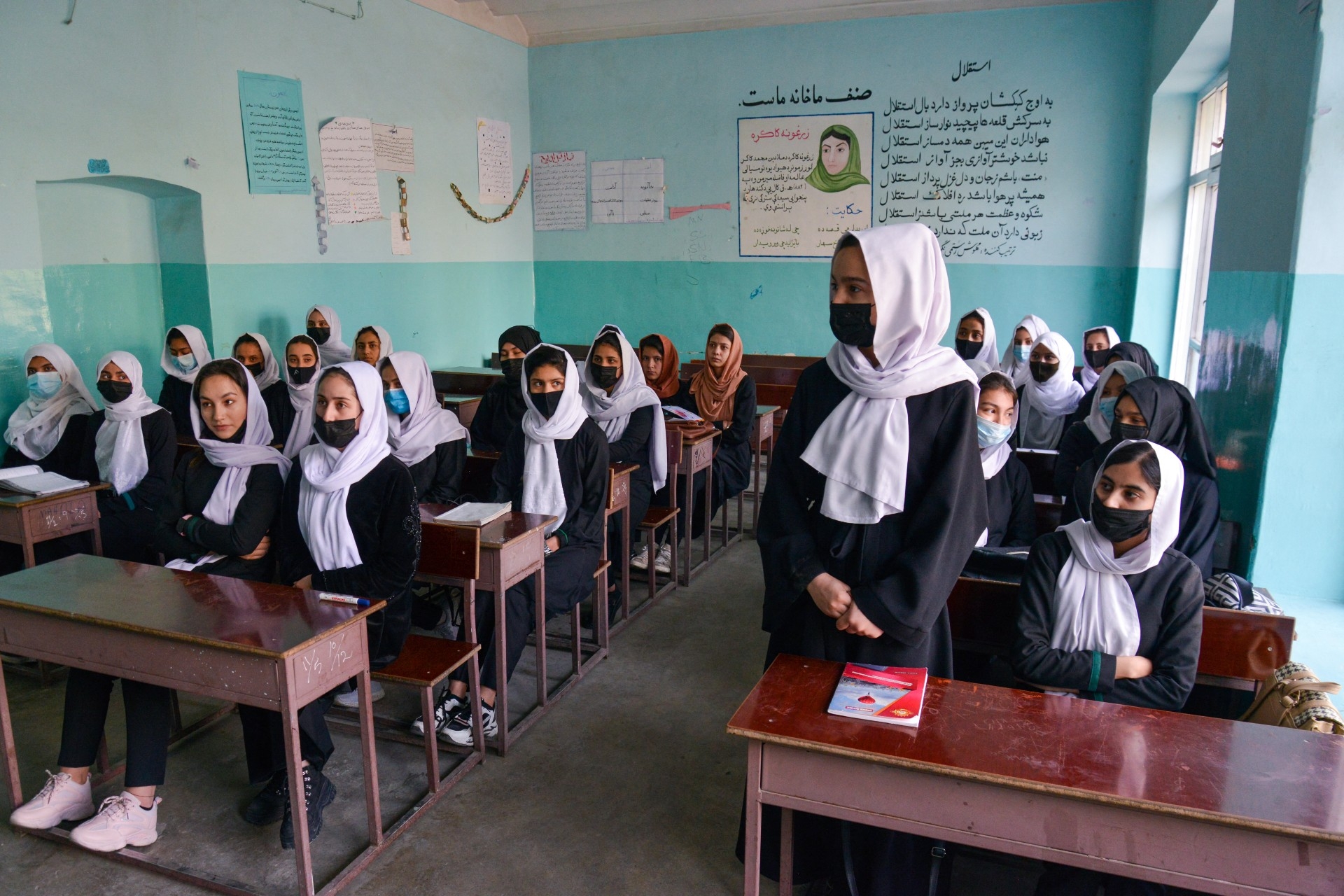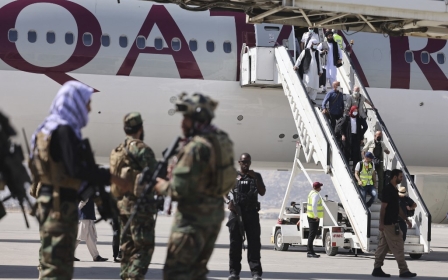Afghanistan: Taliban’s schoolgirl ban condemned in the Middle East

The Taliban’s decision to once again delay the return of teenage girls to school has been met with condemnation and disappointment in the Middle East, with Qatar and Turkey urging the Afghan group to reconsider its decision.
On Wednesday morning, thousands of teenage girls across Afghanistan headed to school based on repeated promises by the Taliban that they would be allowed to return to the classroom at the start of the new school year.
However, that decision, which the Taliban had been touting in the media and during meetings with foreign officials for weeks, was reversed at the last minute. Local media was flooded with footage of teenage girls in tears as they headed back home with their books in hand.
The move was quickly denounced by governments around the world. In the Middle East, Qatar, where several Taliban officials have been based for more than a decade, was among the first to express its dismay.
Within hours of the news breaking, the Qatari foreign ministry said the Taliban government's decision was of “great concern and disappointment” to Doha.
New MEE newsletter: Jerusalem Dispatch
Sign up to get the latest insights and analysis on Israel-Palestine, alongside Turkey Unpacked and other MEE newsletters
“As a Muslim country where women enjoy all their rights, including the right to education, Qatar calls on the caretaker government of Afghanistan to revisit its decision in line with the teachings of Islam in relation to women rights,” it added.
Doha’s rebuke was similar in tone to a September statement, when Foreign Minister Sheikh Mohammed bin Abdulrahman Al Thani also criticized the Taliban’s policy towards schoolgirls, stressing that as a Muslim country, Qatar has “women outnumbering men in workforces, in government and in higher education”.
Qatar itself has been criticised for draconian and opaque guardianship laws that critics say place severe restrictions on Qatari women.
Middle East Eye recently reported on the case of Noof al-Maadeed, a prominent Qatari women's rights activist who disappeared for three months after returning home to the Gulf country from the UK, where she had sought asylum.
Masuda Sultan, an Afghan-American entrepreneur who has worked with organisations trying to aid Afghanistan’s women, agreed with Doha’s assertion that the Islamic Emirate should look towards other Muslim-majority countries as models.
“Qatar is a nation which observes Sharia and also happens to have equal access to education for females… Qatar shows what’s possible for women even in a conservative Muslim society,” Sultan said.
Last month, when representatives from six member-states of the Gulf Cooperation Council met with the Taliban’s acting foreign minister in Doha, they too stressed the need for the full inclusion of women and girls in a Taliban-run Afghanistan.
The representatives from Qatar, Bahrain, Kuwait, the United Arab Emirates, Oman and Saudi Arabia, all countries whose laws are based on Sharia, called on the Taliban to create a reconciliation plan for Afghanistan that “respects basic freedoms and rights, including women’s right to work and education”.
Though there have been reports that some teenage girls have been able to return to the classroom in the western province of Herat, a female teacher in the province of Kunduz told Middle East Eye that girls’ high schools in her area are still closed.
The teacher, who did not wish to be named due to security concerns, said: “In Kunduz all schools beyond the sixth grade remain closed. Girls who went to their schools on Wednesday were turned away.”
Long-term impact
Turkey, which invited Taliban representatives to a security conference earlier this month, also criticised the Afghan government’s failure to live up to its word and reopen secondary schools for girls.
“It is essentially the expectation of the majority of Afghan people themselves that all students, including girls, continue their education with the new school term,” a statement issued by the Turkish foreign ministry read.
Ankara, which has said the Taliban’s caretaker government should have an opportunity to be heard by the rest of the world, went on to say the Islamic Emirate should “allow girls of all ages to partake in education in an inclusive manner as soon as possible”.
'Banning girls from education kills their spirit. It’s un-Islamic and inhuman'
- Orzala Nemat, researcher
Researcher Orzala Nemat worries about the emotional toll that the continuation of the ban on the education of teenage girls will have on adolescent girls at such a key period in their development.
“Banning girls from education kills their spirit. It’s un-Islamic and inhuman,” Nemat told MEE.
Nemat, who spent years advocating for women’s rights, said the ban, which has drawn widespread criticism in Afghanistan and among the international community, “only benefits those who want to keep Afghanistan in a dark state of ignorance”.
She fears the toll any continuation of the ban could have on Afghan society as a whole, especially considering the fact that even during the 20-year rule of the western-backed Islamic Republic, which did not ban girls’ education, there were less than five nurses and midwives for every 10,000 people in a nation of more than 32 million.
“Banning girls’ education today means much fewer female doctors and professionals for tomorrow, years of war and conflict had already worsened the situation over the past four decades,” Nemat said.
Middle East Eye delivers independent and unrivalled coverage and analysis of the Middle East, North Africa and beyond. To learn more about republishing this content and the associated fees, please fill out this form. More about MEE can be found here.





